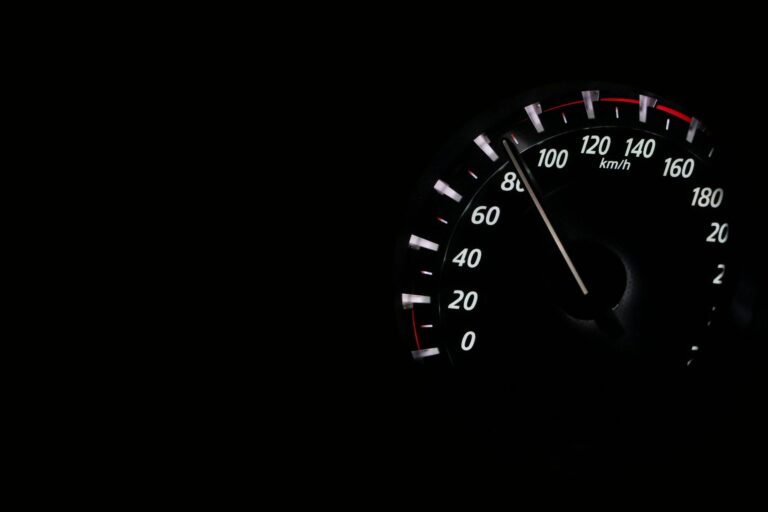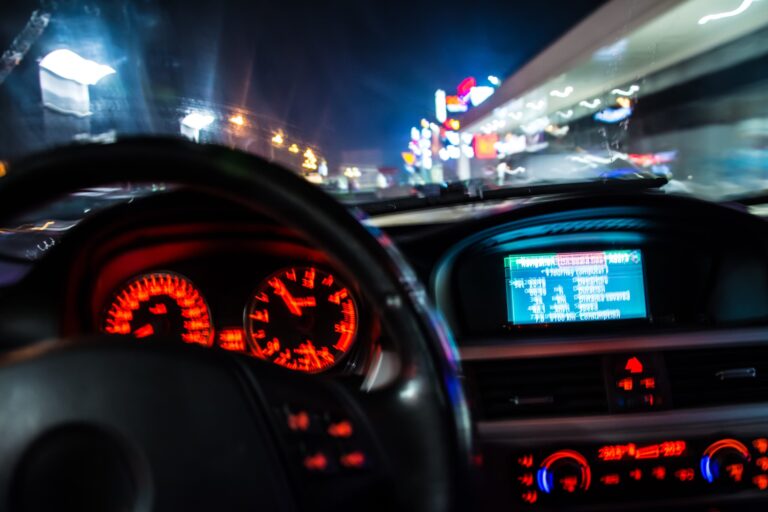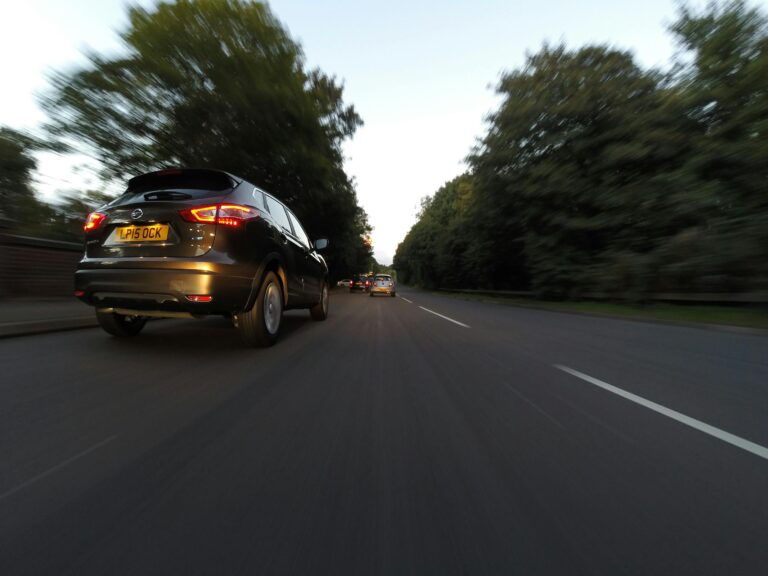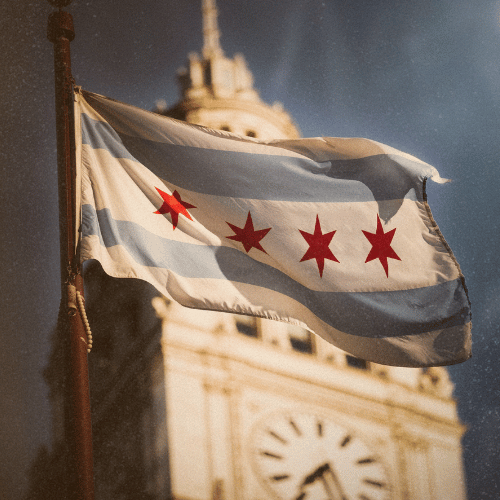Can I Get a DUI for Sleeping in My Car in Illinois?
You made the responsible decision not to drive after drinking. Instead, you chose to sleep it off in your car. While that might sound like the safer choice, many Illinois drivers are shocked to learn they can still be arrested and charged with DUI just for sleeping behind the wheel.
Under Illinois law, the issue is not limited to whether the vehicle is moving or whether you are actively driving. The key question is whether you were in actual physical control of the vehicle. If the answer is yes, even if the engine was off and you were asleep, you may still face DUI charges.
Illinois DUI Law and “Actual Physical Control”
Illinois law defines DUI under 625 ILCS 5/11-501.You can be charged with DUI if you are found to be in actual physical control of a vehicle while under the influence of alcohol, drugs, or a combination of both.
The term “actual physical control” is not precisely defined in the statute, but Illinois courts have interpreted it to mean that a person has the capability to start and operate the vehicle, even if they are not driving at the moment of arrest. That interpretation gives law enforcement wide discretion. You do not need to be driving or even have the engine running to be charged. If the officer believes you were in a position to operate the vehicle while under the influence, you may be arrested and charged with DUI.
When Sleeping in a Car Becomes a DUI Risk
In Illinois, many drivers believe they are doing the right thing by not driving while intoxicated. What they often do not realize is that certain factors can make an officer believe you were still in control of the vehicle. These factors include:
1. Sitting in the Driver’s Seat
If you are asleep in the driver’s seat, that alone may be enough to establish actual physical control. Courts often assume that you are more likely to drive if you are positioned behind the wheel.
2. Possession of the Keys
If the keys are in the ignition, in your hand, or even within easy reach, this may support the charge. Illinois courts have held that having the ability to start the vehicle, even if you do not, can be sufficient.
3. Location of the Vehicle
If your vehicle is parked in a location where it appears you recently drove there — such as on the side of a road or in a parking lot near a bar — officers may argue that you were driving shortly before being found.
4. Signs of Recent Operation
Warm engine, headlights on, or a recently parked position may be cited as evidence that you had been driving and stopped to rest.
5. Time and Context
Late night hours, presence of open containers, or a location that suggests intent to drive away may all be considered by officers and later argued in court.
Illinois Case Law Examples
Illinois courts have upheld DUI convictions in cases where the vehicle was not in motion but the driver was considered to be in actual physical control. In City of Naperville v. Watson, for example, the court found that the defendant, who was asleep in the driver’s seat with the keys in the ignition, was in actual physical control of the vehicle. The fact that he was not driving at the moment of arrest was not enough to avoid conviction.
In another case from Kane County, a driver was found sleeping in a car parked legally in a fast food lot. Even though the engine was off, the keys were on the seat beside him. Officers charged him with DUI after determining he was under the influence and had the capacity to drive. The court upheld the arrest on the grounds that the totality of the circumstances showed actual physical control.
These cases demonstrate that the law is not limited to traditional notions of driving. What matters is your capacity to drive, not whether you actually did.
How to Protect Yourself If You Must Sleep in Your Car
The best way to avoid a DUIis to not get behind the wheel at all if you have been drinking. But if you find yourself in a situation where sleeping in your car is your only option, here are practical steps that may reduce your risk:
1. Do Not Sit in the Driver’s Seat
Move to the back seat or passenger side. This makes it harder for the prosecution to claim you were in control of the vehicle.
2. Remove the Keys from the Passenger Compartment
Put the keys in the trunk, glove box, or outside the vehicle altogether if possible. This demonstrates that you did not intend to start or drive the car.
3. Do Not Leave the Engine Running
Even if you are trying to stay warm, running the engine while asleep gives the appearance of intent to operate the vehicle. Courts may consider this strong evidence of control.
4. Park in a Safe, Legal Location
Private property is better than a roadside shoulder. The fewer signs there are that you were recently driving, the better.
5. Call for Help Instead
Whenever possible, use a rideshare app, taxi, or call a friend or family member. This is always the safest option.
What to Do If You Are Charged with DUI While Sleeping in Your Car
If you are facing DUI charges after sleeping in your car, you need a strong legal defense. These cases are fact-specific, and there are many opportunities to challenge the officer’s interpretation of your actions. An experienced DUI defense attorney will examine the circumstances of your arrest and determine whether:
- The officer had probable cause to approach and question you
- The field sobriety or chemical tests were administered properly
- Your position in the car actually demonstrated intent to operate
- Your driving record and past conduct were improperly used against you
- Your rights were violated during the arrest
Andy Sotiropoulos has successfully defended clients in this exact situation across Cook, DuPage, Will, Kane, and Kendall counties. In many cases, he has argued that clients were not in actual physical control and had no intent to drive, resulting in reduced charges or dismissals.
Legal Strategy in “Sleeping DUI” Cases
These cases hinge on detail. A good defense attorney will focus on several key questions:
- Where in the vehicle were you found?
- Were the keys in the ignition or hidden away?
- Was the engine running?
- Was the car legally parked or in a risky location?
- Were you fully asleep or roused during a wellness check?
Answers to these questions help build the narrative that you were not in control of the vehicle and did not pose a danger to others. Judges and prosecutors often consider the context, not just the arresting officer’s assumptions.
Sleeping in your car while intoxicated might seem like the responsible choice compared to driving, but under Illinois law, it can still result in a DUI arrest. Courts look at whether you were in a position to operate the vehicle, not whether you actually be charged with DUI. If police believe you had the ability and opportunity to operate the vehicle while intoxicated, they can arrest you on DUI charges, even if you were just sleeping.
What Factors Do Police Consider?
In DUI cases involving a person sleeping in a vehicle, officers and prosecutors will look at several key factors to determine whether you were in actual physical control. These are the questions law enforcement and the court will typically ask:
Were You in the Driver’s Seat?
If you were found asleep in the driver’s seat, especially with the seat reclined but your feet near the pedals, that alone may be enough for an officer to make an arrest. Being in the driver’s seat places you in a position where you can operate the vehicle, and courts in Illinois have often found this sufficient to support a DUI charge.
Were the Keys in the Ignition or Within Reach?
If the car keys were in the ignition, or even just within reach — such as in your pocket, the center console, or on the passenger seat — police may conclude that you had the ability to start the vehicle at any moment. That can support a finding of actual physical control under Illinois law.In contrast, if the keys were stored in the trunk or with another person, your attorney may argue you had no ability or intention to drive, which can support a defense to DUI charges.
Was the Vehicle Running or Warm?
Some people leave the engine on while they sleep to keep the heat or air conditioning running. While this may make sleeping in your car more comfortable, it also gives officers another reason to believe you were operating the vehicle while impaired. If the engine is warm or running when the officer arrives, it becomes much harder to argue that you were simply sleeping without intending to drive.
Where Was the Vehicle Parked?
Location matters. If the car was legally parked in a private lot or driveway, it may support your defense that you had no intention to drive. On the other hand, if the vehicle was stopped on the shoulder of a road, in a parking lane, or near an intersection, police may argue that you drove there while intoxicated and then fell asleep. Even if you tell the officer you parked there before drinking or called someone else to drop off the vehicle, you should expect your statements and the scene to be heavily scrutinized.
Illinois Case Law on Sleeping and DUI Charges
Illinois appellate courts have consistently upheld DUI convictions where the defendant was asleep in a parked vehicle, even when the engine was off. The guiding principle is that the prosecution does not need to prove that the defendant was driving — only that they were in actual physical control.
In People v. Cummings, for example, the defendant was found asleep in the driver’s seat with the engine off and the keys in his pocket. The court upheld the DUI conviction, citing that he had the ability to operate the vehicle at any time.
In another case, People v. Long, the defendant was asleep in a running vehicle parked on a residential street. The court again ruled that actual physical control had been established and affirmed the DUI conviction.
These decisions illustrate the high risk Illinois drivers face if they try to “sleep it off” in their vehicle after drinking, even with good intentions.
Common Defenses to a DUI While Sleeping
Every DUI case is fact-specific. A strong defense depends on the circumstances of your arrest, the evidence collected by law enforcement, and how your attorney presents your version of events. Below are some strategies that Andy Sotiropoulos has used in Illinois courts to challenge DUI charges in sleeping scenarios.
No Intent to Drive
If your attorney can present evidence that you never intended to drive and took steps to avoid doing so — such as sleeping in the back seat or placing the keys somewhere inaccessible — this can be a powerful argument in your favor.
Lack of Physical Control
If you were not in the driver’s seat, and the vehicle was not running, you may be able to argue that you did not have actual physical control. These facts can create reasonable doubt in the judge’s mind and lead to a dismissal or acquittal.
Illegal Stop or Unlawful Arrest
If police approached your parked vehicle without legal justification, it may be possible to suppress the evidence obtained during that encounter. Andy has successfully filed motions to suppress in cases where law enforcement lacked reasonable suspicion to conduct a welfare check or DUI investigation.
Inaccurate Chemical Testing
Just like in driving DUI cases, breath or blood tests can be challenged. Faulty equipment, improper procedures, or rising blood alcohol levels can all be used to question the accuracy and admissibility of the test results.
What You Should Do If You Are Arrested for Sleeping in Your Car
If you were arrested for DUI after sleeping in your car, your next steps are critical. Here is what you need to do:
Do Not Assume the Case Is Hopeless
Many people believe that if they were intoxicated and in the car, there is no way to fight the charges. This is not true. These cases are fact-sensitive, and a qualified defense attorney can often raise serious questions about how the arrest was handled.
Gather Evidence Immediately
Write down everything you remember about the night, including where the car was parked, whether it was running, and where the keys were located. If you called someone before falling asleep or have receipts that support your timeline, those details matter.
Consult a DUI Defense Attorney Right Away
You need someone who understands the law and the courts in your county. Andy Sotiropoulos has been defending DUI cases in Illinois since 1999 and has handled many cases involving clients who were simply trying to avoid a worse outcome by sleeping in their vehicle.
Do Not Discuss the Case Without Your Attorney
Avoid making statements to police or prosecutors about what happened. Even well-meaning comments can be used against you later. Let your attorney do the talking.
Safer Alternatives to Sleeping in Your Car
While the law technically allows you to sleep in your car, doing so while intoxicated comes with serious legal risk. If you plan to drink, consider these alternatives:
- Use a rideshare service like Uber or Lyft
- Call a taxi or a sober friend
- Stay at a hotel or with someone you trust
- Use public transportation where available
These choices may be inconvenient, but they are far better than facing a DUI charge and all the penalties that come with it.
Legal Help You Can Count On
Being charged with DUI in Illinois when you were just trying to avoid driving is frustrating and frightening. The law in Illinois does not always align with common sense, and officers have wide discretion in deciding whether to arrest you. That is why it is essential to have a defense attorney who knows the law and how to apply it to your benefit. Andy Sotiropoulos has been representing DUI clients across Cook, DuPage, Kane, Will, and Kendall counties for more than two decades. He understands how courts treat these cases and knows how to build a defense that protects your record, your license, and your reputation.
If you were arrested while sleeping in your car and charged with DUI, call Andy today for a free case evaluation. Get real legal answers before making another move.






